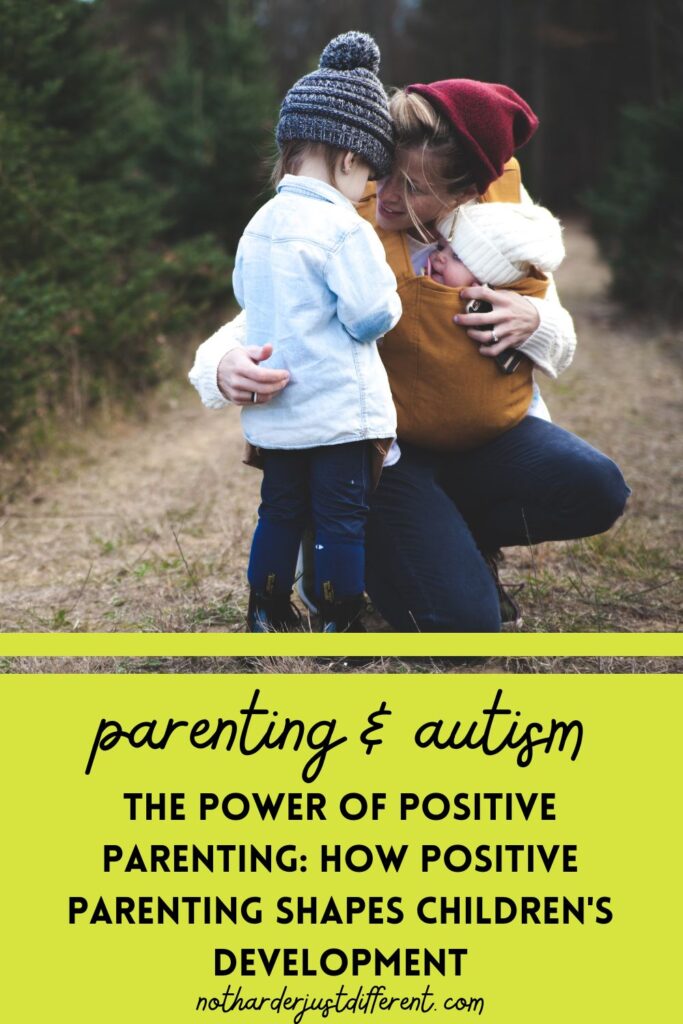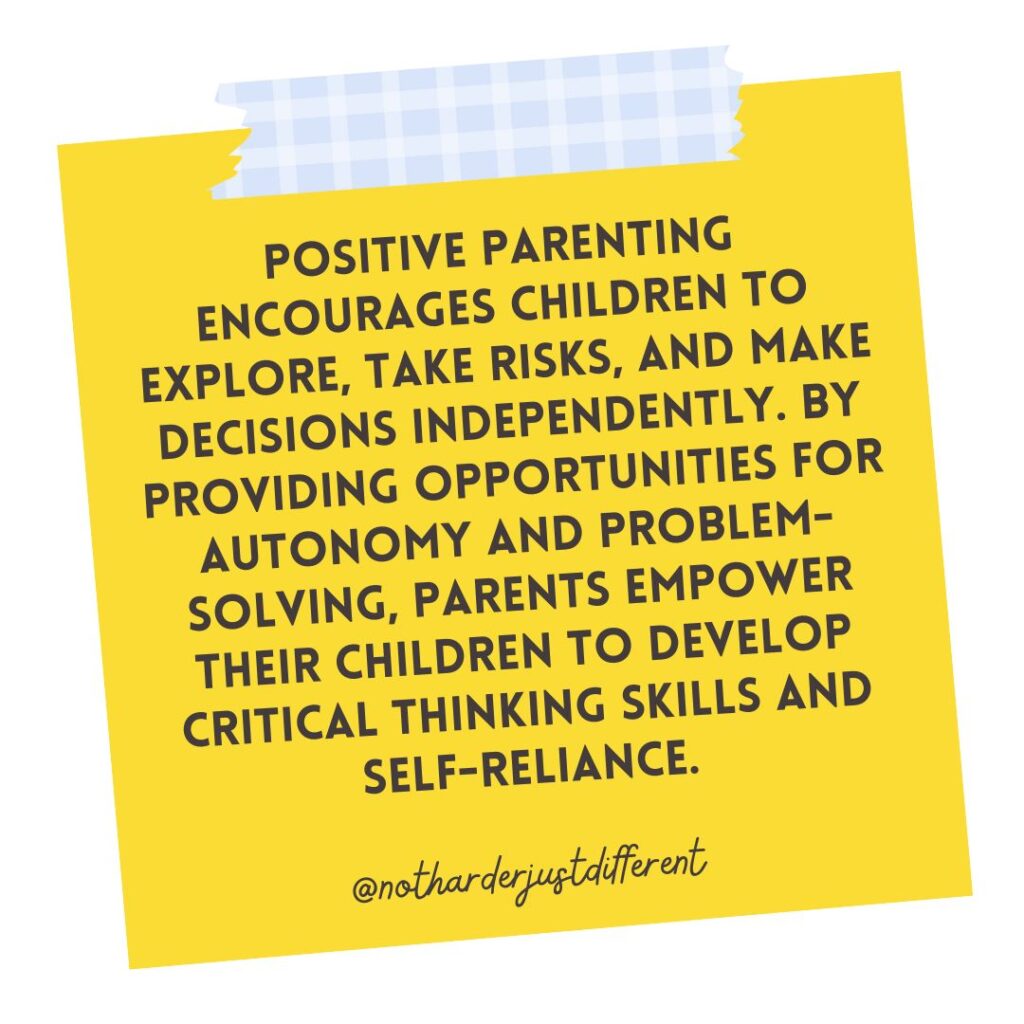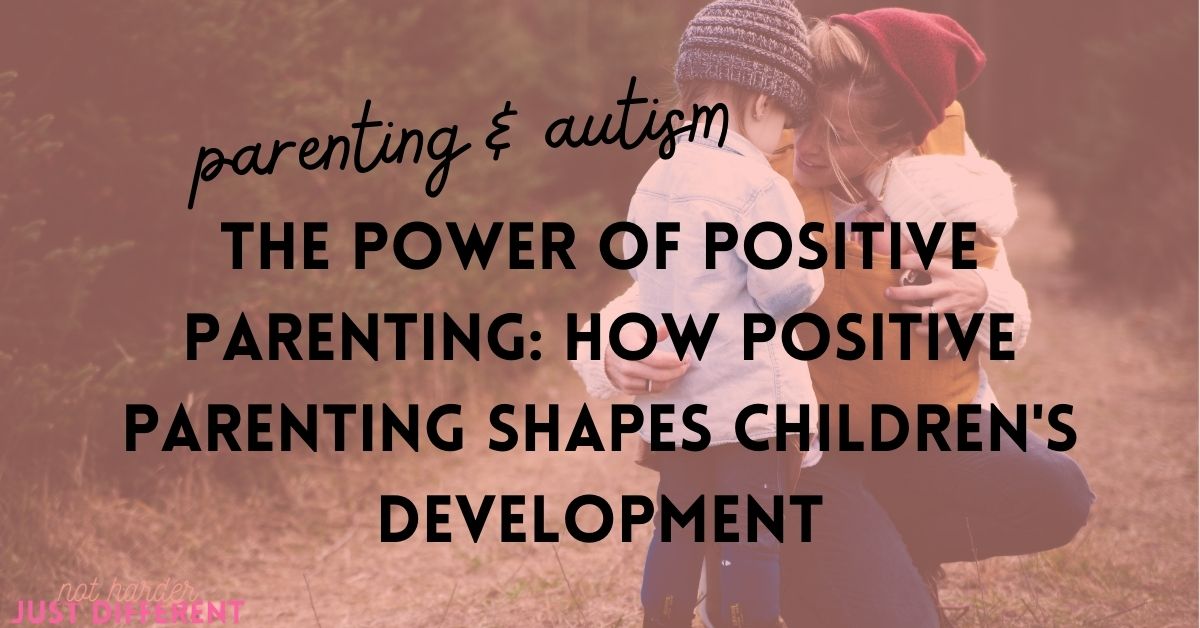Disclaimer: As a future Licensed Clinical Social Worker (LCSW) currently pursuing my master’s degree, I am passionate about sharing insights and information related to parenting, autism and homeschooling based on my personal experiences and research. However, the content shared on this blog is not intended to substitute professional advice, diagnosis, or treatment. Parenting is a deeply personal journey, and while I strive to provide valuable insights, every family and situation is unique. Readers are encouraged to consult with qualified professionals for personalized guidance tailored to their specific needs and circumstances.
Ever wondered about the power of positive parenting? Let’s chat about how encouragement shapes our little ones’ growth. Positive parenting isn’t just about cheers and high-fives—it’s about nurturing resilience and confidence in our kiddos. So, grab your favorite snack, and let’s dive into the world of positive parenting together!
Positive parenting is like the secret sauce of raising awesome kids. It’s all about creating a supportive and uplifting environment where children feel valued, capable, and loved. Think of it as being your child’s biggest cheerleader, guiding them with warmth, empathy, and understanding along the way. Positive parenting emphasizes building strong connections, fostering open communication, and celebrating the unique strengths and qualities of each child.
Now, let’s talk about how positive parenting shapes children’s development. From boosting self-esteem to teaching essential life skills, positive parenting sets the stage for success. It’s about creating a solid foundation of love and encouragement that empowers children to navigate life’s challenges with confidence and resilience.

The Power of Positive Parenting
Boosting Self-Esteem
Positive parenting provides children with consistent praise, encouragement, and validation, which helps boost their self-esteem and confidence. By recognizing and celebrating their achievements, both big and small, children develop a positive sense of self-worth and belief in their abilities.
Fostering Emotional Intelligence
Through positive parenting, children learn to identify and express their emotions in healthy ways. Parents model empathy, understanding, and effective communication, teaching children to recognize and regulate their feelings while also respecting the emotions of others. This fosters emotional intelligence and helps children build strong interpersonal relationships.

Encouraging Independence
Positive parenting encourages children to explore, take risks, and make decisions independently. By providing opportunities for autonomy and problem-solving, parents empower their children to develop critical thinking skills and self-reliance. This sense of independence fosters resilience and adaptability, preparing children to navigate life’s challenges with confidence.
Promoting Positive Behavior
Through positive reinforcement and clear expectations, positive parenting helps shape children’s behavior in constructive ways. Instead of focusing on punishment or coercion, parents highlight and reinforce desired behaviors, such as kindness, honesty, and responsibility. This encourages children to internalize positive values and develop strong moral character.
Building Strong Relationships
Positive parenting strengthens the bond between parent and child, laying the foundation for healthy and supportive relationships. By prioritizing quality time, active listening, and open communication, parents create a nurturing and secure attachment with their children. This sense of connection fosters trust, resilience, and a deep sense of belonging, which is essential for children’s overall development and well-being.
Can positive parenting be effective for children of all ages, including toddlers, adolescents, and teenagers?
Positive parenting can be effective for children of all ages, from toddlers to teenagers, and beyond. The principles of positive parenting, such as warmth, empathy, clear communication, and setting reasonable expectations, remain relevant and valuable throughout a child’s developmental stages. With toddlers, positive parenting techniques like praise, encouragement, and positive reinforcement help foster a sense of autonomy and self-confidence. During the adolescent years, positive parenting emphasizes open communication, mutual respect, and guiding teenagers through challenges with empathy and understanding. By maintaining a supportive and nurturing environment, positive parenting helps children of all ages develop essential life skills, emotional intelligence, and resilience, setting them up for success in adulthood.

